In May 2016, Firaxis released the announcement trailer for the next installment in the Civilization series. Since then, fans have been eagerly awaiting the arrival of Civilization VI — and on October 21st we finally got what we had been waiting for.
I have been a fan of Civilization since the original game, so I was dead excited to get my hands on the latest installment — and I was in no way disappointed. It isn’t the best Civ game out there (for me that would be Civ IV) but it is fun and well worth a play.
The new game is very easy on the eye, and the gameplay has been somewhat streamlined and less intimidating for new players. There is a whole host of new features which only enhance the game and there have been some removed which also seems to make the game more user-friendly. It’s all wrapped up in the historically correct content that Civ players are used to.
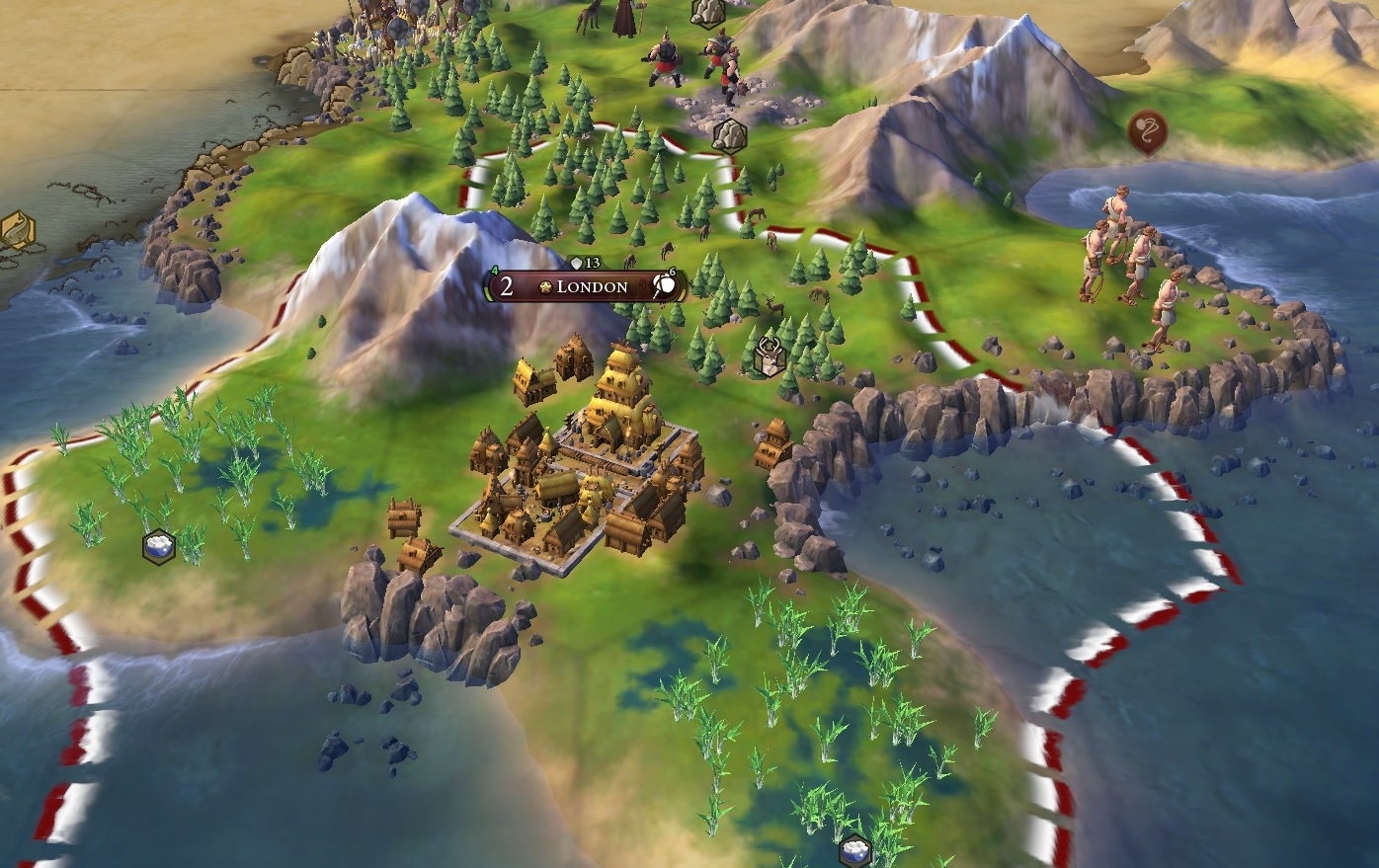 The start of the English Empire
The start of the English Empire
Tile by Tile
There are many articles already about the introduction of districts, so I’m not going to go too much into them — but I am going to give my opinion on them. I think that they are a very welcomed addition to the gameplay mechanics of Civilization VI. There are certain areas, just like a real-life city, which are designed to do specific things like an entertainment area, an industrial area, and university campus, etc., and this has now been incorporated into the game. So you unlock the industrial district, for example, which means that you can now add an area to your city which is focused on generating production. Inside the industrial zone, you can build factories, workshops, and power plants.
For me, this unstacking of the cities makes me properly feel like I am building my own civilization. When you unlock a Wonder, these get their own tile and are well designed and very visible on the map. A lot of work has gone into making each district look distinctly different from the other tiles around it.
I haven’t played them yet but some civilizations have their own unique districts. For example, Russia has the Lavra district (which is a monastery) and Rome has the Bath district (which replaces the Aqueduct).
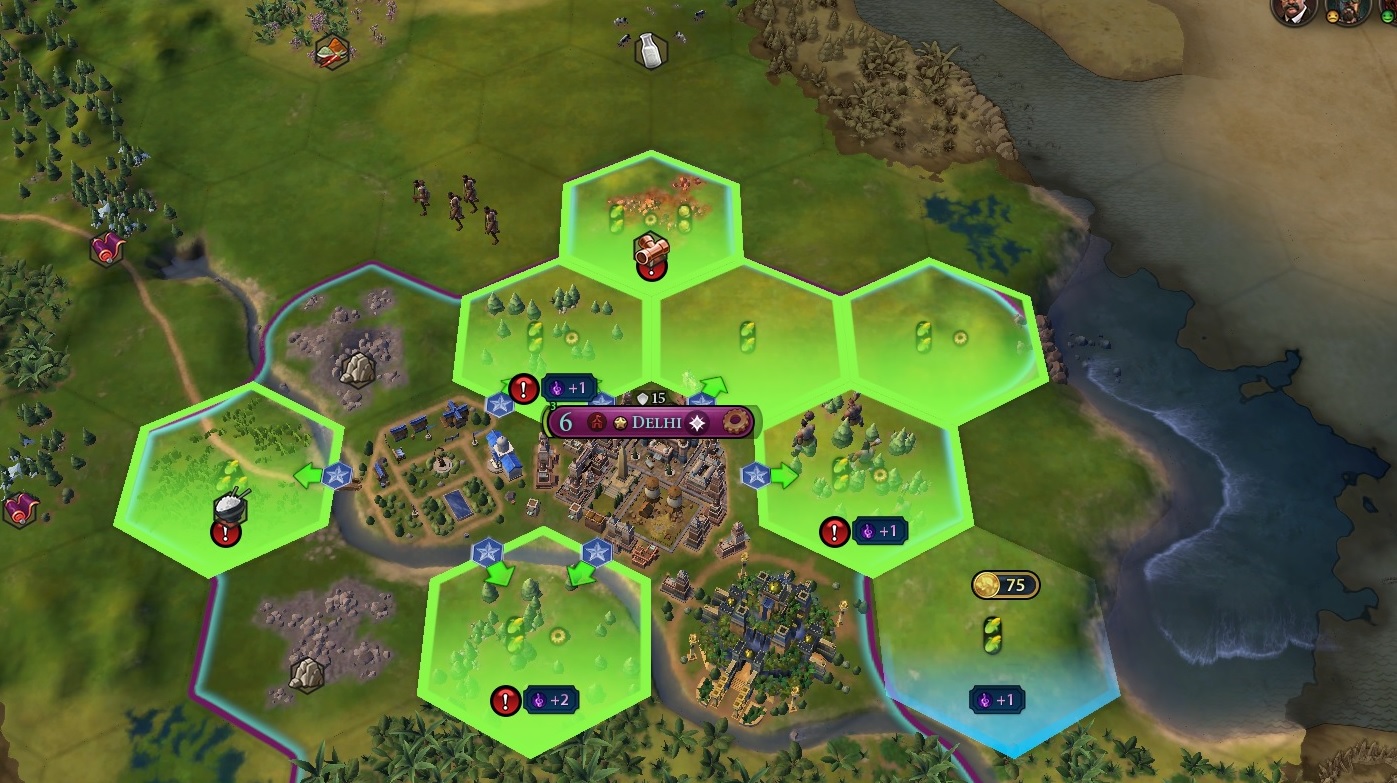 Choose where you want to put your new district
Choose where you want to put your new district
Diplomacy matters
The AI in Civilization VI is a bit annoying, to say the least. It is pretty unpredictable, but as long as you’ve taken the time to check out and read everything in the diplomacy menus, then you should be okay.
With each leader having their own agenda, it is actually pretty easy to keep on top things and to keep them at bay… mostly. However, I did find that there was a lot of contradictions with my civilizations own agenda and play style when it came to appeasing everyone. For example, I kept getting hassle from Norway, a military civ, when I was playing as India, a peaceful cultural civ. He kept building up to my borders and then accusing me of intentionally putting my troops next to his borders when mine were there originally. Then there were the messages about my lack of military and that he likes a leader who has a strong military force. Clearly, our civilization’s ideals overlapped but the fact that the AI kept on at me nearly made me give up on that campaign.
A lot of improvements have been made in diplomacy, and things are pretty transparent if you look for them. There is a clear way of starting friendships with other civilizations and plenty of opportunities to strengthen it and force alliances. You can send delegations, send gifts, make deals, start trade routes — eventually forming an alliance to help in times of war etc.
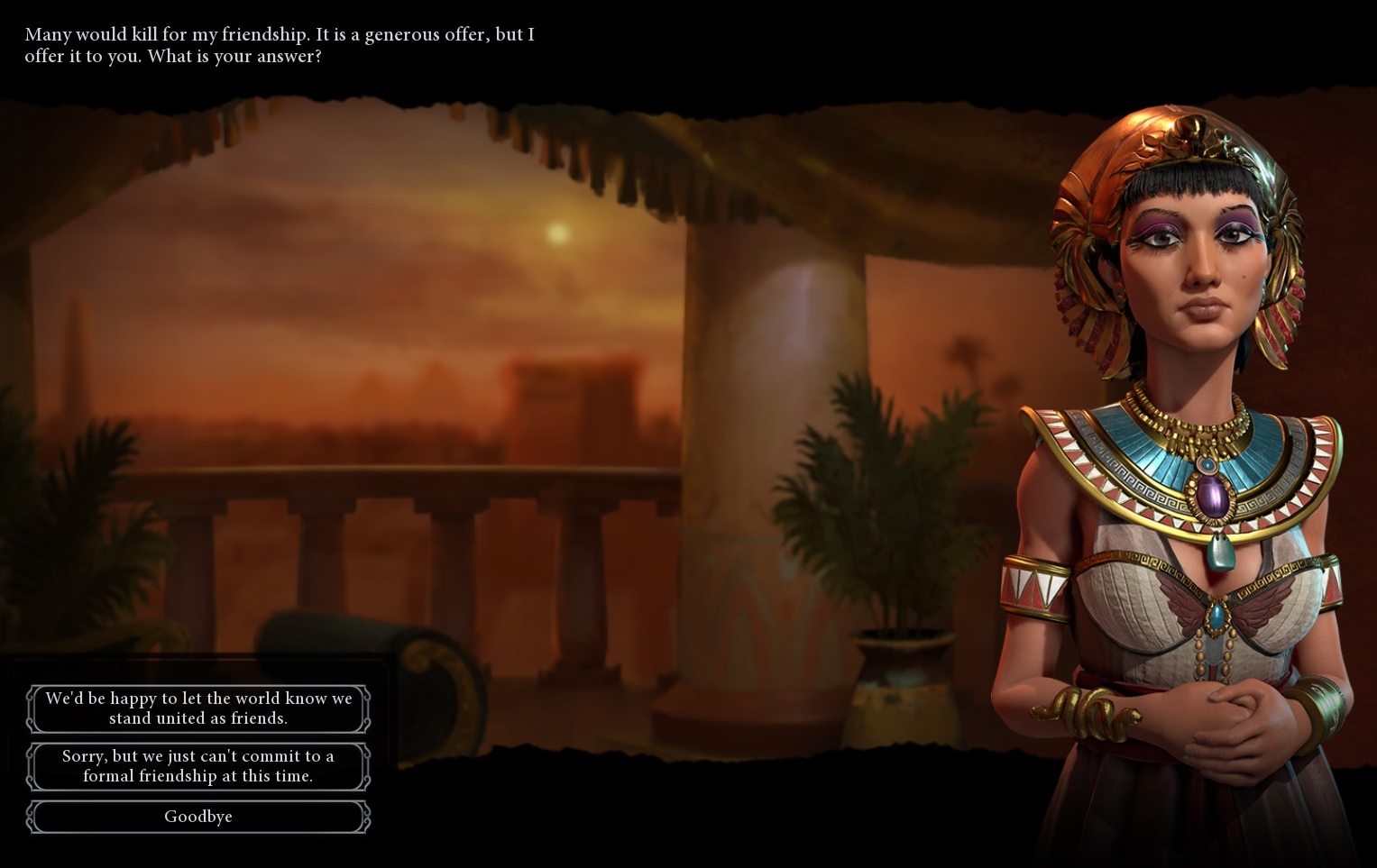 Do you want to be friends with Cleopatra of Egypt?
Do you want to be friends with Cleopatra of Egypt?
Listen to the trees
The Technology and Civic trees, that is. Any old hand at the Civ games will be all too familiar with the way that the Technology tree works in-game. But a new concept to Civilization VI is the Civic tree. While the normal tech tree focuses on military and science, the civic tree allows you to work through cultural development and diplomatic concepts. This side of things really interested me.
Sometimes you are rewarded with something called a Policy card, which allows you to change something within your government set up. The card might give you a boost to production during certain eras or might aid you in diplomatic relations with city-states by giving extra envoys. Instead of changing your government type all the time, this allows you to tweak your policies with the slots you have available instead of totally changing government type all the time.
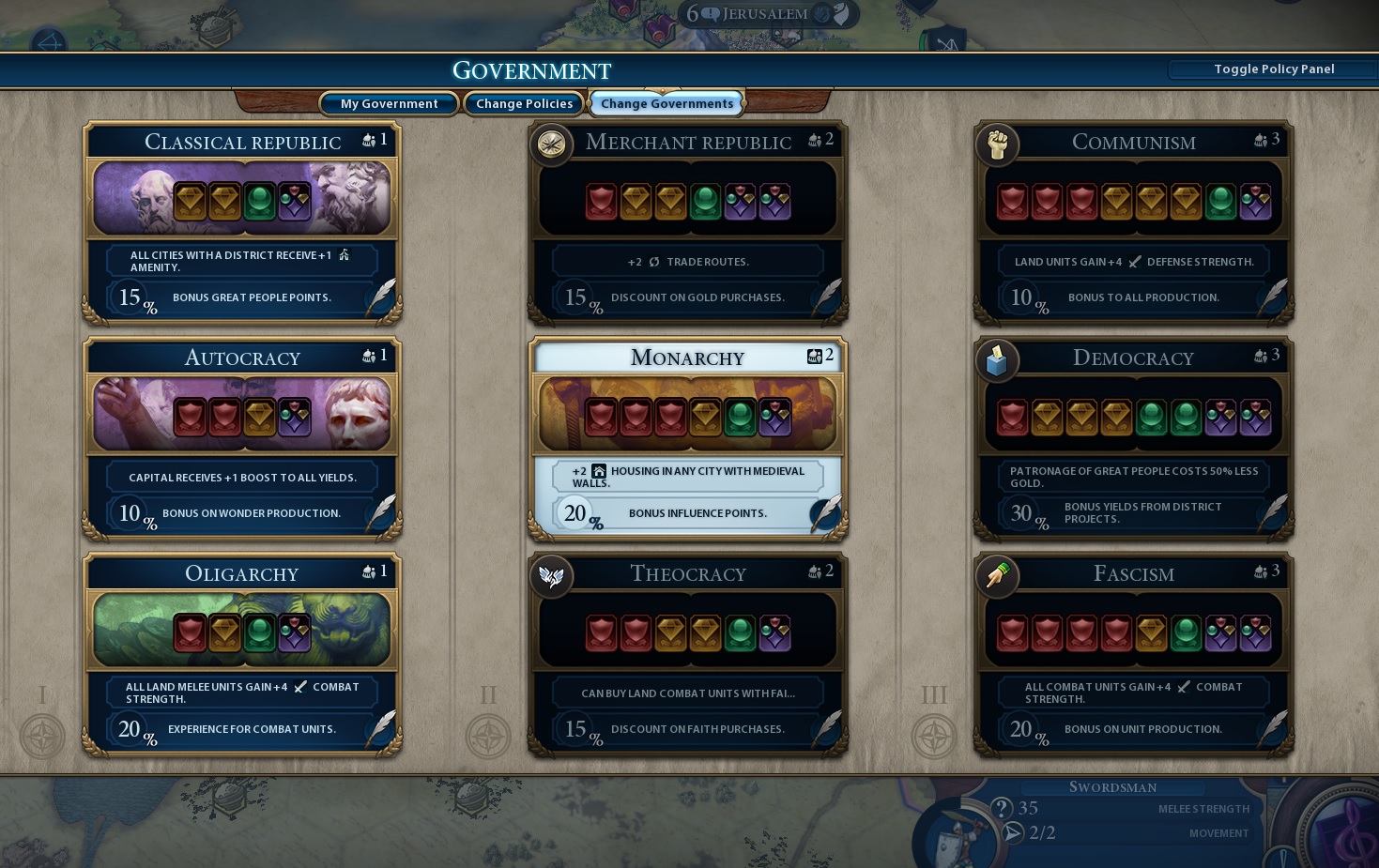 A variety of Government types to choose from
A variety of Government types to choose from
Sights and Sounds
I love the look of Civilization VI. I like how they have made the leaders look even though they are very cartoon-like. But I’ve seen comments on a variety of forums of those who disapprove of this new look. Yes, Civ has been known for its more ‘realistic’ art style and I’m not saying that I don’t like that — but for me, this new look is in line with the overall aesthetic of the game. All the colors on the map, the buildings, the units…they are all bright and quite vivid in some cases and I think that the more cartoon look of the leaders fits in well.
Once again, the soundtrack is very nice and there are some familiar tunes hidden in there, but the calm music lends itself to being laid back and relaxing. One of the best things about the sounds of Civilization VI is the new narrator. This time around it is none other than the British actor Sean Bean (Game of Thrones, Lord of the Rings). Although my favorite narrator will always be Leonard Nimoy, Bean’s voice suits the narration and reading the various quotes.
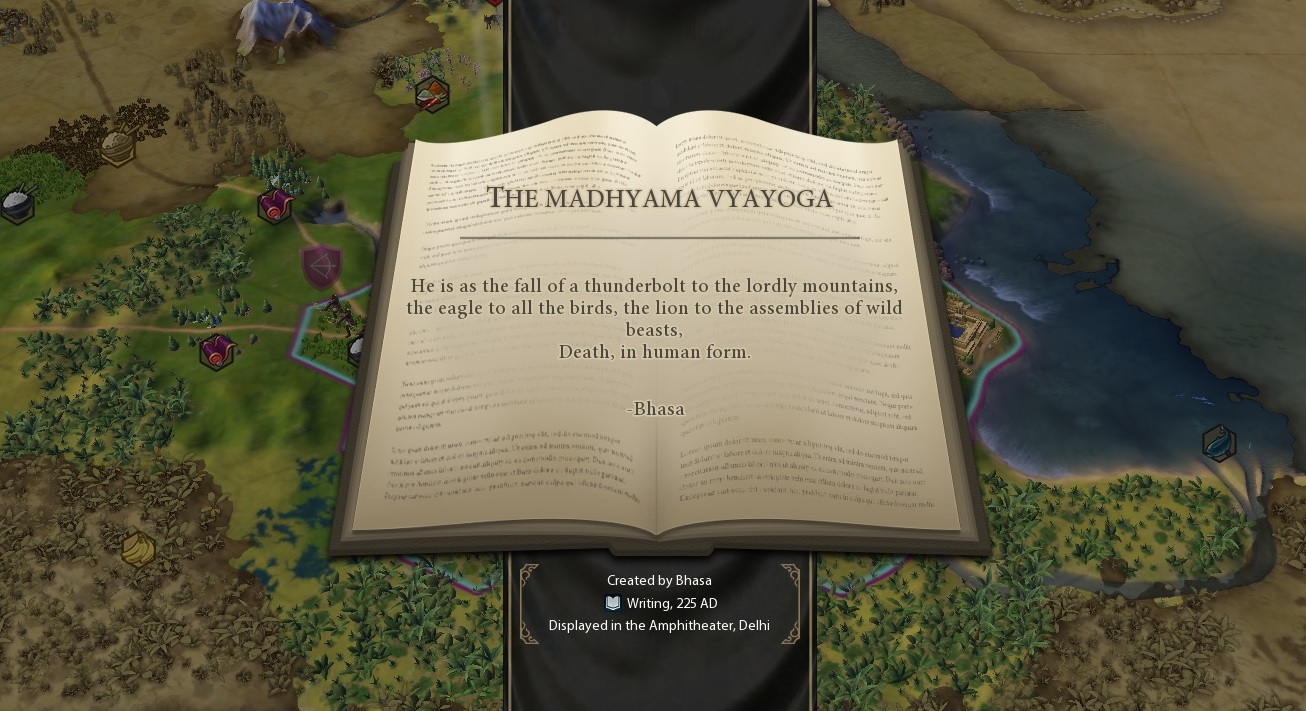 One of the Great Works of Literature
One of the Great Works of Literature
Need some advice?
If you have played other games in the series, you will be familiar with Advisors. In previous games, your military advisor or culture advisor would pop up on screen and offer you advice on what you might want to consider doing next. But this time around, these have been replaced by one advisor who will give you little bits of advice. Literally, little bits.
Basically, it is just like “we must send an envoy to other city states”… ok, so a bit of an explanation would be good there. Why do we need to? What would be the benefit of doing that? In this example, the information about benefits etc. could be found on the envoy screen — but other than that, the Advisor does really advise and just gives you a bit of nudge in the “what to build next” direction.
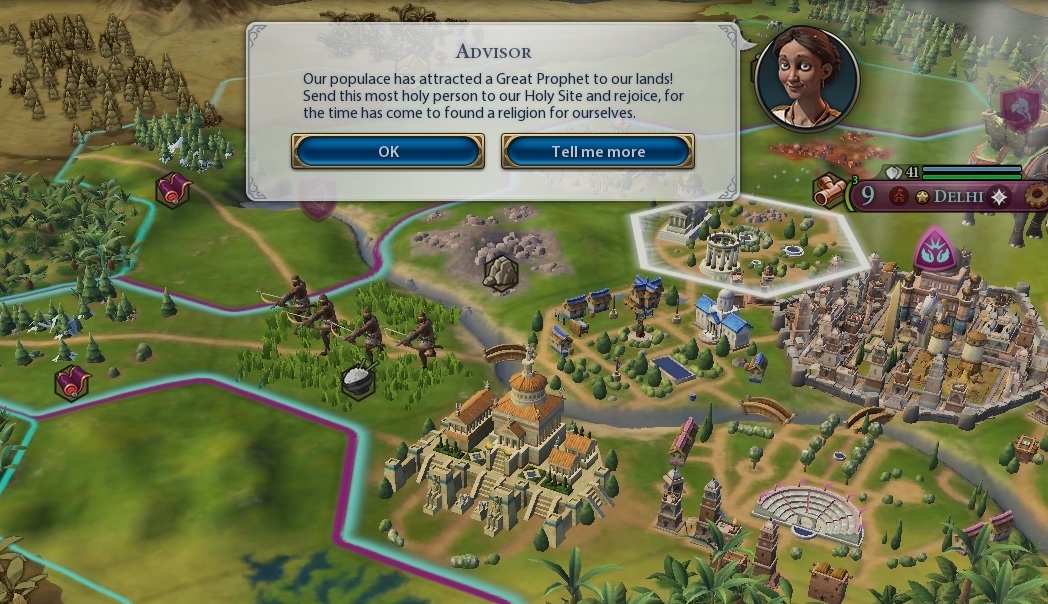 Yay, I got a Great Prophet! Now, what?
Yay, I got a Great Prophet! Now, what?
For what short givings Civilization VI has, I can’t put it down. They are definitely outweighed by the fact that it is a good game with plenty of playability and the new additions make it a unique game on its own and a contender in the strategy field. I definitely recommend it to those who are already a fan of the series and to those who are relatively new to the RTS genre.







Published: Oct 30, 2016 02:20 pm